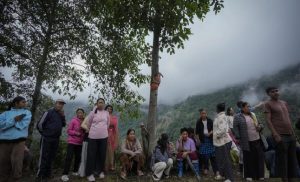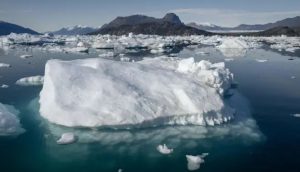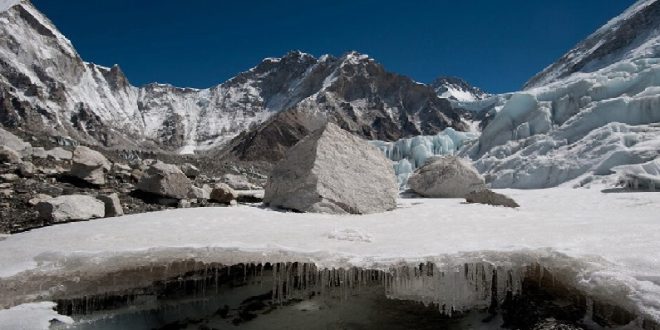18-08-2024
KATMANDU: A Sherpa village in Nepal’s Everest region has been engulfed by icy flood waters, officials say.
Experts suspect Thame which sits at an altitude of about 3,800m was flooded after a glacial lake burst its banks. Scientists have warned that climate change is causing many glaciers in the Himalayas to melt at an alarming rate.
 No deaths or injuries have been reported, but more than a dozen buildings including houses, a school and a health clinic have been completely destroyed by Friday’s deluge.
No deaths or injuries have been reported, but more than a dozen buildings including houses, a school and a health clinic have been completely destroyed by Friday’s deluge.
Thame is home to many record-holding Sherpa mountaineers and is also where Sherpa Tenzing Norgay, the first person to climb Mount Everest along with explorer Edmund Hillary, hailed from.
Videos show frothy, milky waters surging through the village in floods turned brown by mud and debris.
A spokesman for the Nepalese army, Gaurav Kumar KC, told media about 15 homes had been swept away, while rescue teams were helping people to safety.
Local authorities say bad weather did not permit the use of helicopters during their investigation, adding they plan to fly to the mountains on Saturday morning.
While the cause of the flood is unknown, Arun Bhakta Shrestha, a climate change specialist at the International Centre for Integrated Mountain Development (ICIMOD) said there are “indications” it was the result of a glacial lake outburst and they were working to confirm it.
Scientists have warned that Himalayan glaciers are melting because of climate change and creating glacial lakes, often dammed by loose rock and debris, which makes them unstable and prone to bursting their banks.
Hundreds of glacial lakes formed from glacial melt have appeared out of nowhere in the Himalayas in recent decades. According to a 2020 report by the ICIMOD, 2,070 were documented in Nepal, of which 21 were ranked “potentially dangerous”.
 Climate change is affecting the speed of the Earth’s rotation and could impact how we keep time, a study says.
Climate change is affecting the speed of the Earth’s rotation and could impact how we keep time, a study says.
Accelerating melt from Greenland and Antarctica is adding extra water to the world’s seas, redistributing mass.
That is very slightly slowing the Earth’s rotation but the planet is still spinning faster than it used to.
The effect is that global timekeepers may need to subtract a second from our clocks later than would otherwise have been the case.
“Global warming is already affecting global timekeeping,” says the study, published in the journal Nature.
Coordinated Universal Time (UTC) which is used by most of the world to regulate clocks and time is calculated by the Earth’s rotation but the Earth’s rotation rate is not constant and can therefore have an effect on how long our days and nights are.
Changes to the planet’s liquid core have meant the Earth has been spinning slightly quicker.
Since the 1970s, to correct for this, about 27 leap seconds have been added to the global clock, with timekeepers planning on subtracting a second for the first time in 2026. This is known as a “negative leap second.”
However, the study finds that ice melt caused by climate change has partly offset that acceleration.
Ice sheets are now losing mass five times faster than they were 30 years ago, meaning that the negative leap second change will not be needed until 2029, the study suggests. (Int’l Monitoring Desk)
 Pressmediaofindia
Pressmediaofindia




